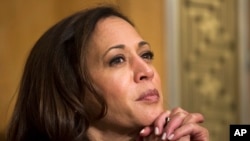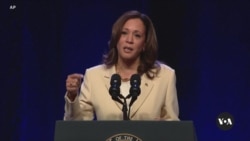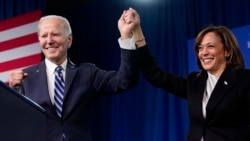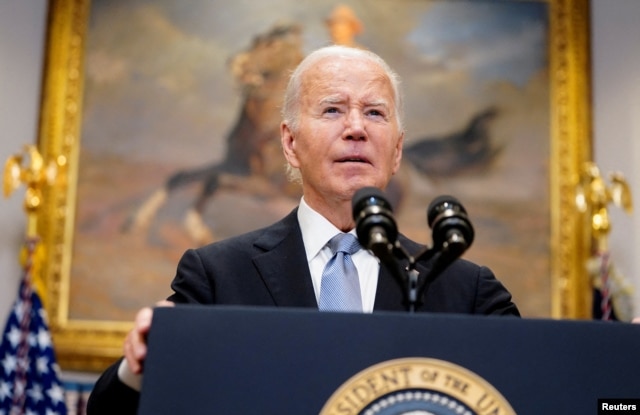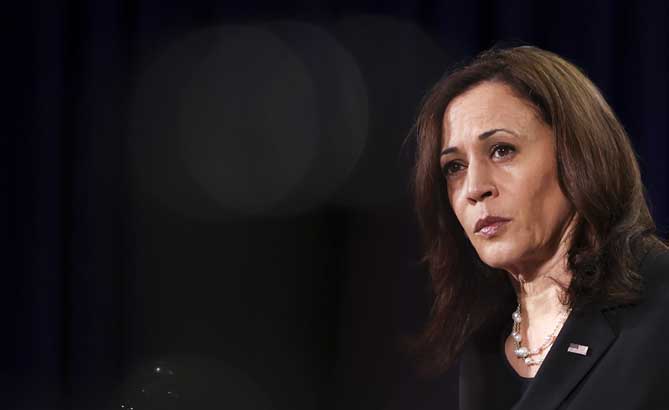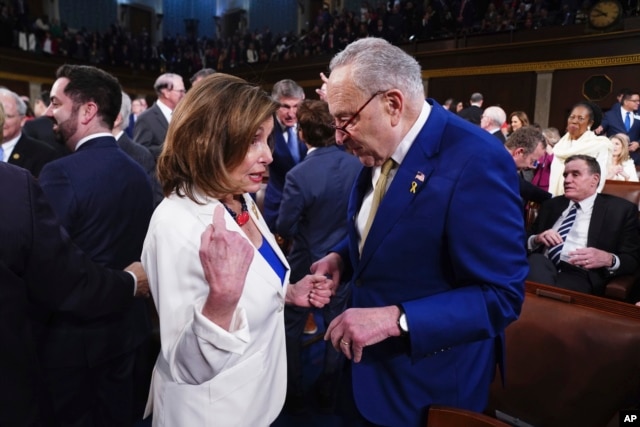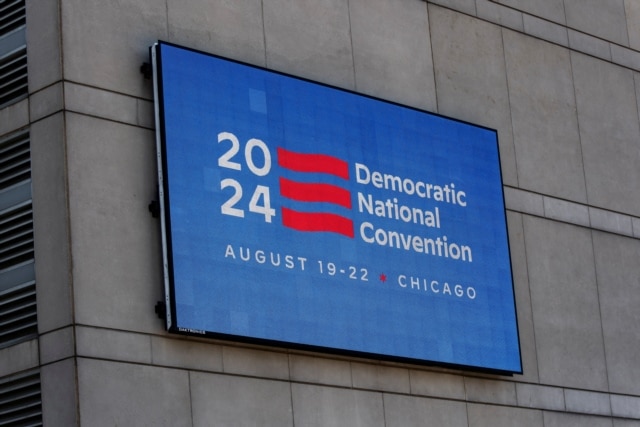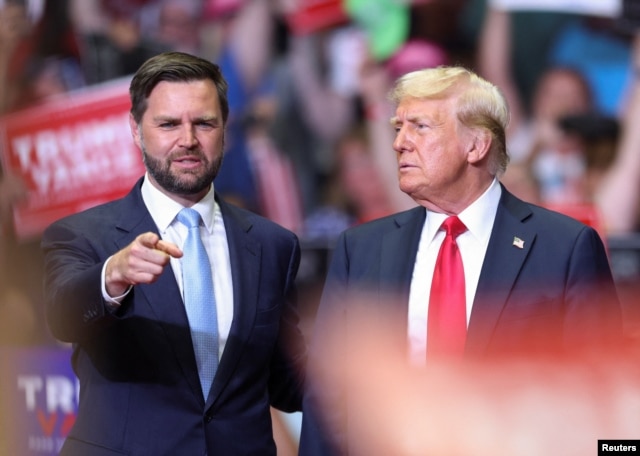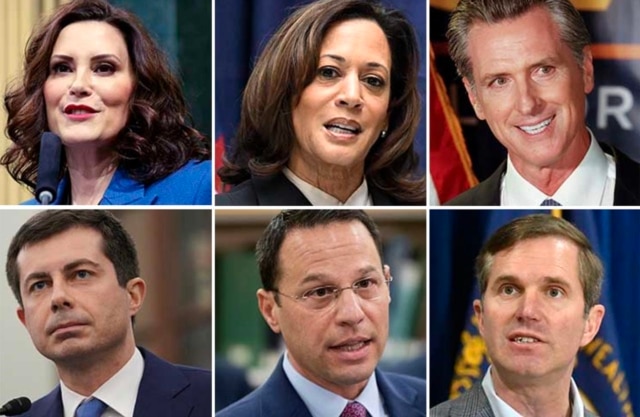With Joe Biden endorsing Kamala Harris as the Democratic Party’s presidential nominee, she could become the first Black woman and first person of South Asian descent to head a major party ticket.
Harris has served more than three years as the nation’s second-in-command, but after Biden withdrew from the 2024 presidential race on Sunday, she became a prime contender for the nomination.
While she has taken on high-profile tasks as vice president, she has also struggled to find policy wins and to connect with voters.
Harris made history in 2020 when she became the first woman to win the vice presidency, as well as the first Black woman and first woman of Asian descent to hold the office.
She entered the role with expectations that she might carry the mantle of the Democratic Party into the future, possibly becoming next in line for the Democratic nomination.
While Harris quickly took on high-profile policy tasks as vice president, they were often complex issues that proved too intractable for her to make major gains.
Watch related report by Carolyn Presutti:
One of her early assignments was to address root causes of migration to the southern U.S. border by working to improve conditions in the Northern Triangle countries of Honduras, El Salvador and Guatemala.
The task put her at the forefront of the politically charged issue of immigration. During a 2021 NBC News interview, after being asked repeatedly why she hadn't been to the U.S.-Mexico border when she had traveled to Central America, Harris replied with a widely panned answer: "And I haven't been to Europe. And I mean, I don't understand the point you're making."
While Harris' staff argued that the vice president was charged specifically with examining root causes of migration and not securing the border, Harris' own message to potential migrants during her trip to Central America helped tie her to the issue.
"Do not come. You will be turned back," she said at a news conference with then-Guatemalan President Alejandro Giammattei.
Harris also took on the task of overseeing the Biden administration's efforts to pass voting rights legislation and comprehensive election reform, bills that always had long odds of passing in the evenly divided Senate. The legislation failed in January 2022, despite Biden giving a speech in Atlanta, Georgia, in a final attempt to secure its passage.
Supporters of Harris say she has recently found her stride championing issues such as abortion access and gun safety.
Since the Supreme Court overturned federal protections for abortion rights in June 2022, Harris has made abortion access a key part of her speeches and campaign message. To mark the second anniversary of the court decision, Harris told a Maryland rally, "This is a fight for freedom: the fundamental freedom of a woman to make decisions about her own body and not having her government tell her what to do."
Next in line
Harris' position in the White House took on heightened importance due to Biden's age. The president will be 82 in November, and polls showed most Americans thought he was too old for another term.
After his struggle during the June 27 presidential debate, some Democratic lawmakers and donors called for him to drop out of the race. Less than a month later, when he announced he would bow out of the contest, he endorsed Harris.
She issued a statement saying her “intention is to earn and win this nomination.”
At a July press conference, Biden was asked what about Harris qualifies her to be at the top of the ticket.
"First of all, the way she's handled the issue of freedom of women's bodies — to have control over their bodies. Secondly, her ability to handle almost any issue on the board. This was a hell of a prosecutor," Biden said, adding that "she is "qualified to be president — that's why I picked her."
Before Biden’s withdrawal, Harris had strongly defended Biden's place at the top of the ticket.
"One thing we know about our president, Joe Biden, is that he is a fighter. … He is the first to say, 'When you get knocked down, you get back up,'" she told supporters at a July campaign event in North Carolina.
Struggles with voters
During her vice presidency, Harris has struggled with poor polling numbers.
An NBC poll from June 2023 said her net-negative rating (-17) was the lowest for a vice president since the poll started in 1989.
A Pew Research Center poll in June, taken just before the first presidential debate, found that nearly six in 10 people (59%) held unfavorable views of Harris, while 36% rated her favorably. Another 3% said they had not heard of her.
Since the presidential debate performance raised questions about Biden's ability to win reelection, Democrats have largely rallied around Harris as a potential successor to Biden.
A July poll by The Economist/YouGov found that 73% of Democratic voters would "somewhat" or "strongly" approve of Harris as Biden's replacement if the president dropped out of the race.
Road to the vice presidency
Before becoming vice president, Harris had already achieved several political firsts.
The child of a father from Jamaica and a mother from India, she was the first Black attorney general of the state of California as well as the first woman to hold the job. Her 2016 election to a U.S. Senate seat representing California made her the first woman of South Asian heritage to do so.
Two years into her Senate term, she launched her bid for the 2020 Democratic presidential nomination. Despite a strong start, with 20,000 people attending her 2019 hometown kickoff rally in Oakland, California, her poll numbers steadily declined. By December she announced her departure from the race.
When Biden announced in March 2020 that he would choose a woman as his vice-presidential running mate, Harris' name was always among the top contenders.
Harris holds an undergraduate degree from Howard University in Washington, a historically Black college. She earned a law degree from the University of California, Hastings (now the University of California College of the Law, San Francisco), before working in the Alameda County district attorney's office.
She served two terms as district attorney of San Francisco before being elected California's attorney general. Her California record has been a target of scrutiny, with critics faulting her for not enacting criminal justice reforms and not doing enough to investigate police shootings.
While in the Senate, Harris was known for her aggressive questioning of witnesses during Senate hearings, including then-Supreme Court nominee Brett Kavanaugh and Attorney General William Barr.




